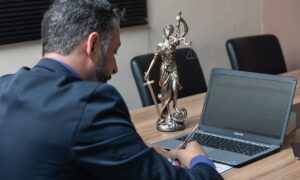The college environment has changed over the past two years. When the pandemic began, many students across the country had their first online classes and exams. Unfortunately, online exams led the students to give rise to discover new ways to cheat, leading to accusations of online academic wrongdoing.
You should contact a lawyer to learn more. It is important to understand your options if you are under academic dismissal.
Ways to avoid online cheating accusations
Before you get on the stage, it is better for every people if you just avoid being caught online cheating in the beginning. There are some tips to prevent online cheating accusations.
Do not cheat.
It is pretty obvious. Different activities fall into “academic misconduct” that everyone is unaware of. Therefore, you should avoid some things if you do not want to get a “cheating” label pasted on your work.
Phones
Using a phone to cheat on your online exams is easy. But professors have their own ways to expose if you are cheating. So it is best not to use the phone at all. It also applies when you open a new tab on your phone or PC.
Collaborative work
Communicating with your friends, screen sharing during exams, and other types of collaboration are different ways to get charged with academic dishonesty.
Plagiarism
It can be confusing what does and does not constitute plagiarism. It is best not to copy from somewhere else on websites. Your professor is smart enough to detect any kind of plagiarism in your answer sheet.
Follow test protocols.
Even if you did not cheat, any suspicious activity could give your professor a chance to charge you for academic dishonesty.
It is best to follow every instruction and not perform any unfair means during an online exam. You can do the following things to stay on the safe side.
- Using secure exam browsers
- Completing assignments
- Identity authentication
- Rules like keeping your video on and mic off
- Time limits
Cite your sources.
Not citing your sources can lead you to be accused of plagiarism. Even if you unintentionally misuse someone else works or represent their ideas as your own, not mentioning the source or misusing quotation marks can give the wrong idea as intentional plagiarism.
Do not freak out when you are suspected of online cheating.
Let’s say you have done everything right. You have followed every protocol, hid your smartphone in another room, and cited the sources. But your professor still suspects you of cheating. Make sure you comprehend everything about the reason for being accused and do not argue with the professor. Next, you should contact an attorney, who will let you know exactly what evidence you need to gather to support yourself.



































